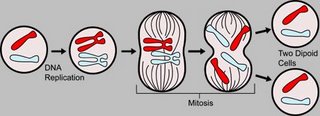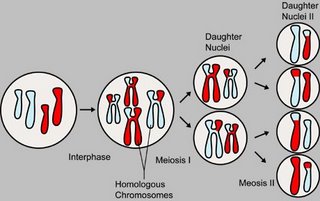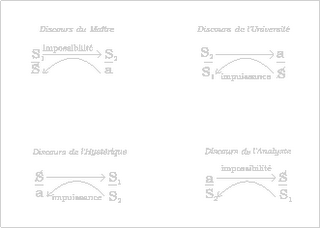Foucault and Zizek... Again (UPDATED)
Repetition changes nothing in the object repeated, but does change something in the mind which contemplates it. Hume's famous thesis takes us to the heart of a problem: since it implies, in principle, a perfect independencDeleuze refers to this synthesis of repetition as habitus. The basic idea is very simple and straightforward-- through the repetition of cases, the mind is led to anticipate what will occur next (B when I experience A) and retend what came before (A when I am now experiencing B). For instance, when I hear tick, I expect to hear tock and when I hear the first few notes of a song, I anticipate the remaining notes. (I say that this passage has been disproportionately influential as there's been a tendency to reduce Deleuze's transcendental empiricism to this classical Humean empiricism, ignoring his account of actualization in later chapters of Difference and Repetition which is concerned not with how we perceive or cognize objects as in Kant and Hume, but with the being of beings themselves), as can be seen in the work of Massumi, Baugh, Hadyn, etc. Indeed, Deleuze argues that the synthesis of habitus underlies the model of recognition that covers over difference, which entails that something is deeply amiss with readings of Deleuze that assimilate his account of repetition and difference to this first synthesis of repetition. It should be noted that Deleuze's transcendental empiricism is an ontological account of beings and not an epistemic account of our relation to objects, as is the case with Hume's habits. Therefore, the first synthesis can only be a small part of the story, not the whole of the story. Ironically, there's a tendency to assimilate Deleuze to a repetition of the same in assimilating him to Humean empiricism and ignoring his genuinely metaphysical claims... Hume staunchly rejecting metaphysics).e on the part of each presentation, how can repetition change something in the case of the repeated element? The rule of discontinuity or instantaneity in repetition tells us that one instance does not appear unless the other has disappeared-- hence the status of matter as mens momentanea. However, given that repetition disappears even as it occurs, how can we say 'the second', 'the third' and 'it is the same'? It has no in-itself. On the other hand, it does not change something in the mind which contemplates it. This is the essence of the modification. Hume takes as an example the repetition of the cases of the type AB, AB, AB, A... . Each case of objective sequence AB is independent of the others. The repetition (although we cannot yet properly speak of repetition) changes nothing in the object or the state of affairs AB. On the other hand, a change is produced in the mind which contemplates: a difference, something new in the mind. Whenever A appears, I expect the appearance of B." (DR, 70)
The key feature not to be missed with regard to habitus is that the system of anticipations and retentions formed as a result of this synthesis cannot be resisted once they are in place. I cannot not anticipate "tock" when I hear "tick". New habits might emerge as a result of experiencing new repetitions, but the synthesis that produces a particular experience of the world all occurs at a sub-cognitive level very close to what Skinner thought of as behavioral conditioning. When I am behaviorally conditioned, my salivation at the sound of a bell has nothing to do with any thought or attitude I might have with respect to the bell, but is rather an automatic response that occurs upon experiencing the bell that I can't help but experience. Indeed, Deleuze writes that, "This is by no means a memory, nor indeed an operation of the understanding: contraction is not a matter of reflection" (DR, 70). Where Kant, in The Critique of Pure Reason, had understood understanding and memory as belonging to the spontaneity of thought or the power of freedom (memory plays a key role in the A Edition version of the transcendental deduction), these "syntheses of time" (ibid.) precede and condition spontaneity, occuring beneath any sort of reflective activity. Deleuze's strategy here is to argue that spontaneity (what he refers to as "active synthesis"), would not even be possible without this passive synthesis that precedes reflective thought.
It is in regard to a conception of cognition such as this that I think we should read Foucault's notorious rejection of ideology as merely the dust kicked up by relations of power, or as an epiphenomenon that fails to get at what is crucial. That Foucault presupposes something like a process of body-formation rendered possible by virtue of the synthesis of habitus comes out most clearly in his analysis of "docile bodies" in Discipline and Punish. There Foucault writes that,
The classical age discovered the body as object and target of power. It is easy enough to find signs of the attention then paid to the body-- to the body that is manipulated, shaped, trained, which obeys, responds, becomes skillful and increases its forces. The great book of Man-the-Machine was written simultaneously on two registers: the anatomico-metaphysical register, of which Descartes wrote the first pages and which the physicians and philosophers continued, and the technico-political register, which was constituted by a whole set of regulations and by empirical and calculated methods relating to the army, the school and the hospital, for controlling and correcting the operations of the body... A body is docile that may be subjected, used, transformed and improved... To begin with, there was the scale of the control: it was a question not of treating the body, en masse, 'wholesale', as if it were an indissociable unity, but of working it 'retail', individually; of exercising upon it a subtle coercion, of obtaining holds upon it at the level of the mechanism itself-- movements, gestures, attitudes, rapidity: an infitesimal power over the active body." (DP, 137)Foucault's point seems to be that discourse and cognition (active synthesis) are completely circumvented in this formation of the body, such that the body is moulded to act automatically in a particular way in the presence of particular signs, regardless of the attitude the subject in question might have to these "habits". Deleuze gives the example of the movements of a chicken as resulting from this sort of synthesis: "The nods of a chicken's head accompany its cardiac pulsations in an organic synthesis before they serve as pecks in the perceptual synthesis with the grain" (DR, 76). Just as the chicken plays no active role in nodding its head in this way as it searches about for grain but does so automatically by virtue of the system of habits it organically is, the subject resulting from a disciplinary regime of the sort described by Foucault automatically moves and experiences affects in the way that it does as a result of a process of body-formation produced through repetition.
In this regard, I'm led to wonder whether Zizek's shift of ideology from what we think about the world to how we subjectivize what we do in the world ("they know very well, but they're still doing it!"), really hits the mark with regard to Foucault. I am not trying to suggest that Foucault is correct and Zizek is wrong. Rather, I find myself wondering whether active synthesis plays any role at all in the sorts of mechanisms of power Foucault describes. Zizek seems to converge with Foucault when he favorably cites Pascal's dictum "kneel and you'll believe", but here there still seems to be the assumption of a decision to kneel, rather than a recognition of the way in which we're thrown into certain conditioning environments and formed by them, prior to even reflecting on a decision of whether to act as others do (thus raising the question of whether issues of identification are even relevant to understanding certain social formations and attitudes giving the body form). Even if I come to recognize that despite knowing money is merely a sign (and nothing of value in itself), I nonetheless behave towards money in exactly the same way (according to Foucault) as a result of the way in which my body has been formed as a system of habits. That is, changing my attitudes towards money does not change how I behave in relation to money (money probably isn't the best example), since this is a conditioned response, not a decision. I still behave like a chicken in relation to the grain. I am thus curious as to how Zizek might respond to this sort of criticism. Ideology critique can certainly take us far in how we behave towards various aspects of the world, but is it capable of targeting this level of passive synthesis described by Foucault's power structures? Or to take a different example, can I cognitively change the way my body has been formed to recognize certain things as signs producing sexual arousal? Or are these signs, once put in place through passive synthesis, irreversable? Going to extremes, is there a sense in which something like architectual innovation and innovations in how we cut up segments of time can be more productive of change in how bodies relate to one another, than changing how we think or reflect the world about us? For instance, was the shift from hunter-gatherer societies to agrarian societies far more transformative of human relations than transformations in beliefs just because it transformed the experience of time (relating time to seasons and a particular order of activities during the day, rather than understanding time in terms of wandering and rest/hunt relations)? Clearly my ideas are vague here.
UPDATE: I've received some perplexed questions offblog as to why I use the term "passive synthesis" in discussing Deleuze's first synthesis of memory. This is the language Deleuze himself uses in the second chapter of Difference and Repetition, "At the moment when it grounds itself upon habit, memory must be grounded by another passive synthesis distinct from that of habit. The passive synthesis of habit in turn refers to this more profound passive synthesis of memory: Habitus and Mnemosyne, the alliance of the sky and the ground" (DR, 79-80, my italics). Deleuze's point is that these syntheses are an automatic activity of mind that occur without the intentional directedness of an ego or a transcendental subject. The target here is the Cartesian/Kantian/Husserlian tradition which presupposes the active agency of a transcendental subject or ego in all activities of thought (this is especially clear in the Kantian doctrine of judgment, where mind actively subsumes a particular under a universal such as in the judgment "Socrates is a man" using the a priori categories of the understanding as rules presiding over this subsumption). Deleuze's strategy is to argue that ego and the active syntheses rendered possible by ego are emergent properties of sub-representational syntheses that presuppose no unified subject or ego as an agency carrying out these syntheses. In this regard, Deleuze's conception accords with Nietzsche's account of "doing without a doer" and his critique of the ego, in Beyond Good and Evil. From what I've been able to tell, Deleuze derives this specific term from Husserl's Cartesian Meditations (cf. section 18, in meditation 2, entitled "Identification as the Fundamental Form of Synthesis. The All-Embracing Synthesis of Transcendental Time"). What is interesting about Husserl's discussion of passive synthesis (which he elaborates continuously from this point on in his work on "genetic phenomenology") is that this synthesis is a level of activity that precedes intentional directedness and is the condition of intentionality altogether. The question here revolves around that of sign-formation (generally an underexplored theme of Difference and Repetition... Deleuze discusses actualization in terms of the formation of signal-sign systems) and whether or not signs can cease to function as signs once they've been formed as signs through this synthesis of habitus. My point or question is that this form of synthesis is something other than the action of the signifier or the decision of an agent, though there is some parallel between Lacan's notion of the signifying chain as automaton and the Humean account of habits. This dimension of habitus is one of the reasons, I take it, that Deleuze and Guattari are so keen on focusing on the ecological and institutional spaces in which a body is housed (which are fields of repetition or spaces where the body contracts certain repetitive rythms and forms a particular response to them, somewhat like the sailor who develops a particular gait or stride as a result of having spent a life at sea) in understanding certain pathologies and why they are critical of focusing on the signifier alone. From a clinical perspective, the important point would be that the agency of the signifier is unable to effect these habits.













